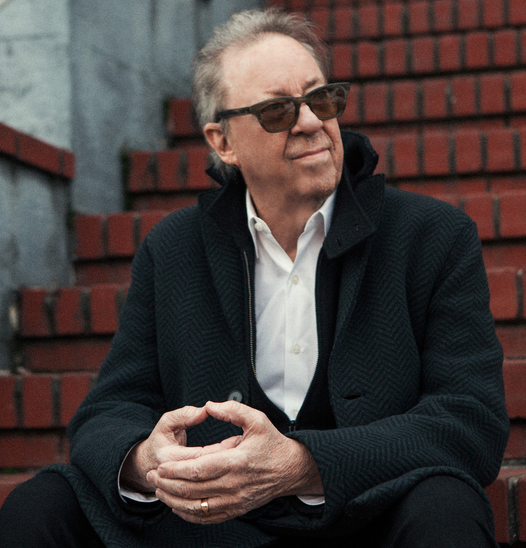Boz Lost Almost Everything to Fire
Boz Scaggs knows the blues. Growing up in Oklahoma and Texas, he would stay up listening to rhythm and blues, country and jazz on the radio. The San Francisco musician, 74, best known for his string of meticulously produced 1970s solo hits such as “Lowdown” and “Lido Shuffle,” has spent the past few years paying homage to his earliest influences. His latest album, “Out of the Blues,” caps off a trilogy that started with 2013’s “Memphis” and 2015’s “A Fool to Care.” It arrives after Scaggs and his wife, Dominique, lost everything in the October 2017 fires that hit Napa Valley – their home, family heirlooms, and lyrics and demos spanning his 50-year music career. Scaggs spoke to us from his apartment in San Francisco. Q: I didn’t realize the North Bay fires had affected you so directly. Did you lose everything? A: I didn’t lose everything because I had most of my instruments on the road with me. But everything personal in the home, my studio, my cars — everything burned. Fortunately, my wife had just joined me on tour the Saturday before the fire started. We were pretty cool about it. You can say it’s just possessions and all that. We have our health. We have our dreams. We have our aspirations. But that would not be the whole and true story about what it feels like to lose all the things that not necessarily have monetary value but you have some sentimental connection with. You don’t have the things that get you through the day. It might be a T-shirt or guitar or toothbrush. It’s just not there. And you go through 10,000 little personal things going, “It’s just not there anymore.” All in all, we count ourselves very, very lucky to have some resources and possibilities. We’ll get back on track. That’s what we’re doing. Q: Did you lose any of your music? A: There was some unrecorded music and lyrics. I had lyrics from my songs from just about all my past – the old legal pads where I scratched out all the music. There are some things that just really, really cut to the core. Q: Not to trivialize it, but did that experience help you inhabit the songs on “Out of the Blues” on a deeper level? A: That’s an interesting proposition. Since I didn’t write the songs, except for co-writing one of the songs on this record, it didn’t particularly influence what I sang about. I don’t know. It’s just the blues. It’s nothing new. It is, of course, a lament. It’s a sense of loss and so forth. But that’s just built into what I’ve been doing all my life. I mean, that just grows with ideas that I came up with, and it doesn’t really relate strictly or directly, I think, to the way the way I live my life. Q: This is the last album in the trilogy you started five years ago. How does it fit in with the previous two? A: It wasn’t really intended to be a trilogy, but it turned out that way. The idea behind No. 3 was to return more specifically to the music that influenced me growing up, which was R&B and the blues. The releases are tied up in their concept of doing material that I did not write but had an impact on the way I shaped my career. Q: You typically like to move forward creatively. What drew you back to the songs you heard growing up? A: I think everyone who has a long career at some point circles back to their roots and beginnings, for whatever reasons. First off, I didn’t actually ever leave it, as one can’t really leave who he is. That music’s always been a part of my process. Not literally, because I did move on and created my own style. There was a progression in the way I developed, but it’s always been with me, and, in that way, it remains in some ways my first love. Posted: Sunday 9 September 2018 Recent Posts
|
|||||||


